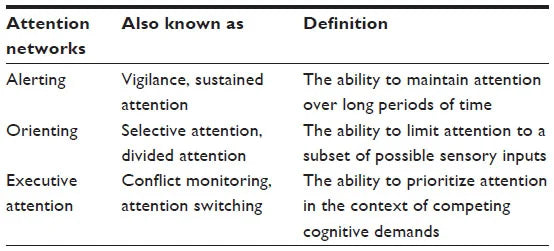“Concentrate all your thoughts upon the work at hand. The sun’s rays do not burn until brought to a focus,” said Alexander Graham Bell, one of the greatest minds of the millennia.
Today, it seems like difficulty focusing has become the problem of the 21st century. You decide to laser-focus on something, and half an hour later, you find yourself mindlessly scrolling your social media news feed.
So, why can’t we focus?
There’s a TL;DR at the end, which stands for too long; didn’t read. If you don’t have the time to read the whole text, you can jump to the bottom, where you’ll find a bulleted summary of the tips in this guide.
The Reason We Lost Focus
If you go back thousands of years to the hunter-gatherer era, you find that laser focus was an absolute necessity for survival.
You’d have to wait hours, even days, for a target. Your focus determined your success.
Because of this, we already have the ability to laser focus built into our system.
But besides focusing, you’d also have to be aware of your surroundings. Seeing motion and colors in your periphery could have meant that a dangerous animal or another threat was approaching you, and you needed to act.
This is called orienting attention.

Now, even though we don’t have wild animals attacking us, we still have that reaction.
And that’s what the multi-billion-dollar advertisement, social media, and entertainment industry use to steal your focus.
So, even if you try to bring all your attention to the task at hand, your orienting attention is actively noticing the notifications on your phone and other devices.
The Downsides of Being Unable to Focus
Even though being unable to focus may not sound like a big deal to many, experts say that in the long term, it creates several problems, including:
- Struggling to find the motivation to complete your work
- Making easy mistakes that should be preventable
- Having issues with decision-making and drawing conclusions
- Forgetting things easily because of a poor working memory
- Lacking physical and mental energy to work and overall tiredness
- Producing poor collaborative work with other team members
- Having trouble problem-solving and thinking clearly on topics
5 Things You Can Start Doing to Increase focus
The good thing is you can re-train your brain to focus on anything you want. You just need to make some healthy changes in your life and take control of orienting attention. Here are some of the ways you can do that.
Quit Multitasking
Multitasking is glorified in today’s fast-paced world. But experts say that even though attempting multiple activities at the same time makes us feel productive, it’s actually a recipe for poor concentration and lower productivity.
Researchers have already established that humans can’t truly multitask. What we call multitasking is actually a rapid switching between two tasks, which results in an inferior performance.
Multitasking not only compromises your work quality but also affects your ability to focus in the long term.

So, starting today, train yourself to focus on a single task at a time. If you’re working, you’re working. If you’re using social media, you’re using social media. And if you’re talking to your friends, you’re talking to your friends.
Don’t divide your attention.
Eliminate Distractions
As I already mentioned, our brains constantly look for things that can be a threat to us.
This means that if a notification rings while you’re working, or the phone on your table constantly lights up, it will cause you to lose focus.
Research studies say that even the presence of a mobile device in your working space can be a massive distraction.
So, the next time you’re focusing, keep your unnecessary gadgets like cell phones out of your workspace.
Practice Meditation
We often ignore the power of meditation. I mean, who has the time to just sit there, with eyes closed, doing nothing, right?
But research studies have found that giving even five minutes daily to meditation strengthens your focus, well-being, and mental fitness.

When you meditate, your brain becomes calmer, and your whole body becomes more relaxed. At this time, your brain is more malleable. So, as you focus on your breath, noticing and letting go of distractions, it in time becomes a habit for your brain.
With practice, you can train your brain to bring its focus back to the current task, even if you’re interrupted.
There are many apps that can help you get started with your meditation journey. So, check them out.
Exercise Regularly
When you start your day with a simple exercise session, it releases a series of chemicals in your brain that boost your memory, concentration, and mental sharpness, says a 2013 Harvard Men’s Health Watch issue.
Besides that, several other researchers have found that regular exercise boosts your brain’s dopamine, serotonin, and norepinephrine levels which helps you build laser focus and attention.
If you don’t know where to start with your workout journey, I have written an in-depth article on the ways you can get your exercise sessions started with just your cell phone.
Take A Break
Taking a break may seem counterintuitive when trying to focus on something important. But do you know that you can only work your brain for so long before it tires out and no longer wants to engage in the task?
Research studies say that the human brain can “only maintain true focus for around 45 minutes before it begins to lose steam.”

After that, it’ll start to become more and more difficult for you to devote your attention to the task.
A short break gives your brain a much-needed rest so it can return bright and refreshed and back to being laser-focused. Think of this as similar to giving your muscles a rest between sets when you’re lifting weights.
The only problem is that, physically, we can’t determine when our brain needs a short break. To help with that, you can use products like the Mindful Focus Hourglass by Intelligent Change.
The Mindful Focus Hourglass comes with a 30/5-minute timer. So, you can focus for 30 minutes and take a 5-minute break. The real beauty is that this isn’t an electronic device, so it won’t act as an additional source of distraction.
So, check it out.
TL;DR
If you didn’t have the time to read the whole thing, here’s a TL;DR, as promised.
Though, if you’re here after reading the whole guide, we’d like to thank you for your support on our journey to help people live safer, healthier lives alongside technology.
Quit multitasking: Focus on one thing at a time.
Eliminate distractions: Keep your phone away from your workspace, and turn off unnecessary notifications.
Practice meditation: You can search for meditation apps on the internet to help you get started, or simply sit in silence.
Exercise regularly: Kicking your day off with a simple exercise routine boosts your brain’s dopamine, serotonin, and norepinephrine levels. This, in turn, helps you focus better.
Take a break: Focusing for hours without a break can be counterintuitive. Take a short break every 30-45 minutes.


















